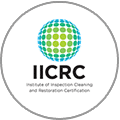Did you know that hurricanes cause an estimated $28 billion in damages annually in the United States? Recovering from hurricane damage requires swift action and careful planning to ensure safety and a smooth recovery process. Whether you’ve experienced minor property damage or significant devastation, it’s essential to know what steps to take after a hurricane to protect yourself, assess the damage, document claims, clean up effectively, prevent health hazards, restore utilities, and manage your emotional well-being.
In this article, we will provide you with a comprehensive guide on what to do after hurricane damage, equipping you with the knowledge and resources to navigate the challenges ahead and rebuild your life with resilience.
Key Takeaways:
- After a hurricane, prioritize safety by following local news updates and avoiding hazards like flooded roads and loose power lines.
- Assess the damage to your property and document it thoroughly for insurance claims using photographs and other evidence.
- Clean up safely by wearing protective gear, disposing of debris properly, and preventing mold growth.
- Be aware of health hazards like carbon monoxide poisoning and practice personal hygiene to reduce the risk of infection.
- Restore utilities cautiously by communicating with utility companies and seeking professional assistance for electrical inspections.
- Take care of your emotional well-being by seeking support, utilizing coping strategies, and considering counseling if needed.
Immediate Steps to Ensure Safety After a Hurricane
After experiencing the devastating effects of a hurricane and ensuring your personal safety, the next crucial step is to take immediate precautions upon returning home. Before making your way back, it’s important to wait for local officials to provide the go-ahead. Stay informed by listening to local news outlets for updates on the safety of your area.
Even after the storm has passed, it’s essential to be cautious of potential hazards. Extended rainfall can lead to flooding, resulting in dangerous conditions on the roads. Additionally, storm surge and overflowing rivers and lakes may cause further flooding. It is vital to avoid flooded roads and washed-out bridges to minimize the risk of accidents.
During the recovery process, it’s important to wear appropriate safety gear, such as gloves and sturdy boots, to protect yourself from unexpected hazards and debris. Be particularly mindful of loose power lines, as they may still pose a danger even after the storm has passed. Stay away from flooded buildings and debris, as they may hide hidden dangers or structural instability.
Another precaution to take after a hurricane is to avoid drinking or using tap water until local authorities have confirmed its safety. Flooding and damage to water treatment systems can compromise the quality of tap water, making it potentially unsafe for consumption or use. It’s always better to rely on bottled water or water from trusted sources.
By following these immediate safety steps, you can significantly reduce the risks associated with returning home after a hurricane, ultimately ensuring the well-being and safety of yourself and your loved ones.
Assessing the Damage and Documenting for Claims
Once you have taken the necessary safety precautions, it’s time to assess the damage caused by the hurricane and start the process of documenting it for insurance purposes. This step is crucial in ensuring that you receive the compensation you need to recover and rebuild.
To begin, assess the hurricane damage to your property both inside and outside. Pay close attention to structural damage, as well as damage to personal belongings. Take thorough photographs of all the damage, capturing different angles and perspectives. These photographs will serve as crucial evidence when documenting the damage for insurance.
When taking photos, make sure to focus on the most significant areas of damage. This includes damaged roofs, windows, walls, and any other structural elements. Additionally, document the damage to your personal belongings, such as furniture, appliances, and electronics.
Remember to gather any other relevant evidence that can support your insurance claim. This includes receipts or invoices for repairs or replacements you may have already undertaken. Having a detailed record of all the expenses incurred due to the hurricane damage will strengthen your claim.
After you have gathered all the necessary documentation, it’s time to contact your insurance company. Report the damage as soon as possible and provide them with all the evidence you have collected. This will initiate the claims process and ensure that your case is documented promptly.
Remember, the more comprehensive and clear your documentation is, the better chances you have of a successful claim. It’s crucial to take this step seriously and be meticulous in your assessment and documentation.
Cleaning Up Safely and Effectively
Cleaning up after a hurricane can be a challenging task, but it’s essential to prioritize safety throughout the process. Taking the necessary precautions and using proper protective gear is crucial to ensure your well-being. Remember to wear gloves, goggles, and masks to protect yourself from potential hazards and contaminants.
When handling debris, be cautious and dispose of it properly to prevent additional dangers. Follow local guidelines for disposal methods and locations to ensure the proper disposal of waste. This not only keeps your environment clean but also helps in the overall recovery process.
Mold prevention is another important consideration during post-hurricane cleanup. After water damage, the risk of mold growth increases. Be sure to dry out affected areas thoroughly and promptly. Using mold inhibitors can also help prevent the growth and spread of mold.
In some cases, seeking professional assistance for cleanup may be necessary. If you’re dealing with extensive damage or hazardous situations, it’s advisable to consult experts who have the knowledge and experience to handle the cleanup effectively and safely.
Remember, safety should never be compromised during the cleaning process. By following these precautions, you can ensure a safer and more efficient post-hurricane cleanup.
Preventing Health Hazards Post-Hurricane
In the aftermath of a hurricane, it’s important to be aware of the various health hazards that can arise. One significant risk is carbon monoxide poisoning. When using portable generators or pressure washers, it is crucial to avoid using them indoors or in enclosed spaces without proper ventilation. These devices should be kept outside and at least 20 feet away from windows, doors, or vents to prevent the buildup of carbon monoxide. To further enhance safety, install battery-operated carbon monoxide detectors whenever using fuel-burning equipment.
In addition to carbon monoxide poisoning, other health concerns may arise due to limited access to clean water. It is essential to prioritize personal hygiene, especially by frequently washing hands with soap and water. Handwashing helps prevent the spread of germs and reduces the risk of infections.
Furthermore, in the aftermath of a hurricane, it’s important to promptly take care of any wounds or injuries to prevent infection. Ensure that any wounds are properly cleaned and dressed. If medical attention is needed, seek professional help as soon as possible.
By being aware of these health hazards and taking the necessary precautions, you can protect yourself and your loved ones after a hurricane. Remember to prioritize proper ventilation, install carbon monoxide detectors, maintain personal hygiene, and promptly address any injuries to ensure a safe and healthy recovery.
Restoring Utilities and Avoiding Electrocution
Restoring utilities after a hurricane is a crucial step in the recovery process. However, it’s important to approach this task with caution to ensure electrical safety and avoid potential hazards. Here are some essential guidelines to follow:
- Contact your utility company to understand the timeline for restoration. They will provide you with updates on when you can expect your electricity and other utilities to be restored.
- Do not attempt to turn on any electrical or gas appliances that may have been affected by water damage. These appliances should be inspected by a professional to ensure they are safe to use.
- During a hurricane, water can seep into electrical systems and appliances, increasing the risk of electrocution. Take precautions and avoid contact with water-damaged electrical equipment.
- If you are unsure or concerned about electrical safety, it is highly recommended to consult with a professional electrician. They can assess your electrical systems and address any potential hazards.
Ensuring the safety of your electrical systems and appliances is crucial to prevent accidents and protect your home. By following these guidelines and seeking professional assistance when needed, you can restore utilities safely after a hurricane.
Managing Emotional Well-being After the Storm
Dealing with the aftermath of a hurricane can have a significant impact on your emotional well-being. The stress and trauma associated with the storm can trigger various emotional challenges. It is crucial to recognize and address these challenges to promote healing and resilience.
One of the most important sources of support during this time is connecting with your loved ones and the community around you. Reach out to family, friends, and neighbors to share your experiences, seek comfort, and provide mutual support. Having a strong support system can alleviate feelings of isolation and provide a sense of belonging.
Additionally, it is essential to focus on coping strategies that promote emotional well-being. Maintaining a sense of routine and normalcy can help create a sense of stability amid the chaos. Engaging in self-care activities, such as practicing mindfulness, exercising, or engaging in hobbies, can also have a positive impact on your emotional state.
Seeking professional help is another valuable resource for managing your emotional well-being after a hurricane. Counselors experienced in post-disaster stress can guide you through the emotional challenges you may face and provide helpful strategies for coping and recovery. They can help you navigate the loss of possessions, trauma from the hurricane, and any other emotional obstacles you encounter.
Remember that the recovery process takes time and it is essential to be patient with yourself and those around you. Healing and rebuilding after a hurricane is a gradual journey, and it is normal to have ups and downs along the way. Be kind to yourself, practice self-compassion, and celebrate small victories as you move forward.
Conclusion
Recovering from hurricane damage requires diligent efforts in prioritizing safety, assessing and documenting the damage, cleaning up effectively, preventing health hazards, restoring utilities, and managing emotional well-being. By following these steps, you can navigate the aftermath of a hurricane in a safe and efficient manner.
Remember that recovery takes time, and it’s essential to seek support and professional help when needed. The road to rebuilding and restoring your life after the storm may be challenging, but with resilience and determination, you can overcome the obstacles in your path.
Throughout this article, we have emphasized the importance of safety precautions, such as waiting for official clearance before returning home and wearing protective gear during cleanup. We have also highlighted the significance of assessing and documenting the damage for insurance claims, preventing health hazards, restoring utilities safely, and managing your emotional well-being.
As you embark on your journey to recovery, remember that you are not alone. Reach out to your community, friends, and family for support. Utilize coping strategies and engage in self-care activities to prioritize your emotional well-being. Gradually, with time and patience, you will rebuild your life and emerge stronger from the storm’s aftermath.






